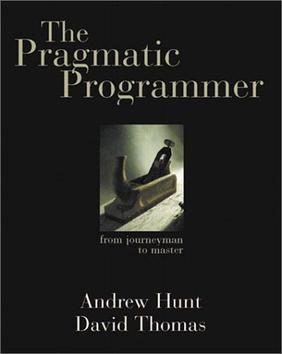February 19, 2018
The Pragmatic Programmer Chapter Notes 3 & 4

Continueing my book club notes on the the Pragmatic Programmer by Andrew Hunt and David Thomas.
Chapter 3
- The best way to store knowledge is in plain text, not binary blobs
- The drawback to plain text is that it comrpesses poorly, and may be expensive to process. This doesn’t seem particularly relevant with modern computers, but I suppose embeded systems still suffer this drawback.
- Plaintext helps insure against obsolescence and eases testing
- Shell beats GUI
- Get good at one editor until it’s like playing the piano
- Use source control (yeah we’re doing the obvious now)
- Embrace debugging as just another form of problem solving
- Turn your ego off when debugging. This is made possible by focusing on fixing the problem and not assigning blame
- Avoid panicing when debugging, accept that the bug is possible, resist the urge to fix the symptoms while leaving the cause
- You can only get so far with automated testing, at times its fastest to simply interview the user
- Rubber Ducking, attempt to explain the problem to someone else, if it’s a rubber duck
- Learn a scripting language (or these days, learn a systems language)
- Have code generators actively monitor and rebuild generated code
Chapter 4
- We are taught to code defensively and validate against bad input. We should also be defensive against ourselves
- Design by Contract (DBC). Define a contract of the pre-conditions for a method call and the guranteed post conditions that method promises. Contstraint invariantss to occuring only within the call itself.
- Be strict with the pre-conditions and make only small promises for the post conditions
- Crash early, don’t ignore an error or assume the system will resume stability once one occurs
- Use assertions to guarantee that events that won’t happen can’t happen. Keep assertions in production to detect these “impossible” events during operation (you won’t detect these during a normal test pass anyway)
- Exceptions should rarely be used as they interupt the program flow.
- If you remove all the exception handlers, then the code should crash.
- The routine that allocates a resource is responsible for deallocating it.